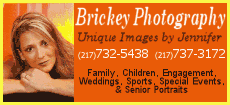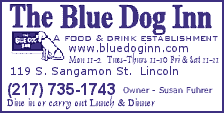|
CHAMPAIGN, Ill. --
There is no certainty in science, no such thing as "the truth." Nor
is science completely rational, objective or free of cultural
influence. There is no step-by-step procedure for doing science, no
"scientific method," says University of Illinois
education professor Fouad
Abd-El-Khalick.
Those who study the scientific enterprise are aware of all this, he
says, but much of the public holds a simpler, more-naïve view about
the nature of science -- and science textbooks may deserve much of
the blame, according to research he presented April 11 at the
American Educational Research Association annual meeting in Chicago.
Abd-El-Khalick (OBD-ell HOLL-ick) led
a study of 14 high school chemistry textbooks from five connected
series, some dating back to the 1960s. The texts were selected
because they commanded a significant share of the U.S. market,
estimated at more than 80 percent, and were used widely in some of
the most populated states.

Abd-El-Khalick was looking at how the
textbooks communicated basic ideas about the nature of science,
which he says are key to scientific literacy. Those ideas can
influence everything from who decides to study science, to how
voters and politicians deal with science-related public policy.
What he found in the textbooks was
disturbing. "Across the board, the books did not do well," he said.
"They either did not address (the) nature of science, or when they
did, most of what they presented was naïve." (Abd-El-Khalick avoids
using "the" in front of the phrase because the exact nature of
science continues to be debated.)
And plenty of statements found in the
textbooks were simply wrong: that a scientific law is a proven fact
that will never change, that the sun rising each day is an example
of a scientific law, that scientists rely only on their data to
reach conclusions, and frequent references to what Abd-El-Khalick
calls "the die-hard myth of the scientific method."
"The other surprising thing is, over
the past 40 years, these textbooks either did not change or became
worse in how they presented nature of science, and that's shocking,"
he said.
 This
despite a major shift over that time in scholarship about the nature
of science, and how it is viewed by those in the field. This also
despite reform efforts by bodies such as the American Association
for the Advancement of Science and the National Research Council,
which see education about the nature of science as a core concern.
Abd-El-Khalick suspects that biology
and physics textbooks are similarly weak in their treatment of these
issues, and he hopes to study those in future research.
[to top of second column]
 |
 To evaluate the chemistry
textbooks, Abd-El-Khalick and his graduate student co-authors, Mindy
Waters and An-Phong Le, used a scale for judging how effectively
each of 10 key aspects of the nature of science were addressed. The
scale ranged from –3 to +3, with –3 assigned for an explicit
misrepresentation (or naïve representation) of a concept and +3
assigned for an explicit, informed and consistent representation.
With the addition of the 10 scores,
the total score for a given textbook could range from –30 to +30.
No textbook scored higher than a 12,
and that textbook was from 1968. Eleven of the 14 scored between –7
and +7, and the four books with negative scores all were published
since 1995. These findings
are important, Abd-El-Khalick said, because textbooks so often
determine the curriculum in science classrooms, rather than serving
just as a teaching resource. "Research shows that an overwhelming
majority of teachers use the textbook as the curriculum," he said.

Gaining a more-informed view of
science is essential, Abd-El-Khalick said, in order to put science
and scientists in their proper perspective. When we view science too
much as "the truth," it can inspire either too much trust in
scientific claims or complete distrust when those claims change or
are questioned, he said. We
can be thrown, for example, by ever-changing health claims or even
by the recent decision to drop Pluto from the list of bodies defined
as planets. "We neither want
to say 'The scientist said this, so it must be true,' nor to say
'They changed their story one more time, so it's out,'"
Abd-El-Khalick said. Between
those two extremes is the "sophisticated middle" where scientific
knowledge is seen as "durable, but tentative," an admittedly
difficult concept to embrace, he said. It is not to be dismissed,
but also open to revision.
Science is also not about simple observation or rigid methodology,
Abd-El-Khalick said, a view that discounts the essential role of
creativity and intuition, and that may discourage many talented
students from pursuing science as a career.
Rather than any set method, he said,
in science "it's the values, it's the habits of mind, that are way
more important."
[Text copied from
University
of Illinois news release]
 |